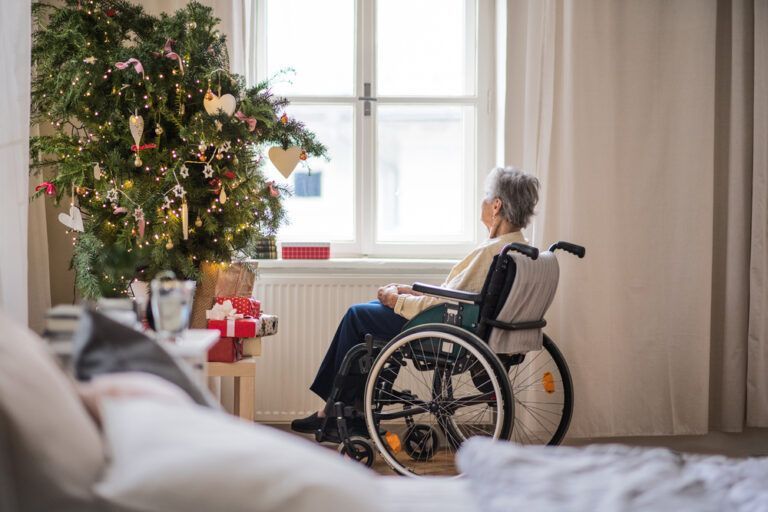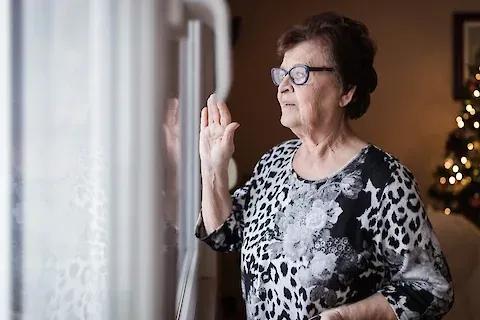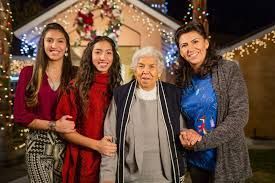Seniors and Loneliness After the Holidays

The holidays are over, you and your family had a wonderful time with mom and/or dad. Mom looked so good, all dressed up, your sister had to help her a little, but she’s getting older. You hadn’t seen her so happy since you were kids.
You did notice she had to nap more than usual and couldn’t do the things she used to like to do; like prepare the ham, fix the mashed potatoes, or even butter her own roll. But you just thought it was too much excitement for her.
Now, you’re back at your home, many miles away, and to your life. What about mom? What is she doing? How is she doing? She’s all alone, or maybe with your dad, all the commotion is over with and there is no more excitement.
For many seniors, the period following the holidays can be a particularly tough time for feelings of loneliness. The heightened social interaction and family gatherings of the festive season often lead to a period of feeling loss of connection and the feeling of being isolated once the celebrations are over when they return to their regular routines.
Here are some key points about seniors and loneliness after the holidays:
· Increased isolation:
The holidays often bring a surge in social interaction, which can highlight the lack of regular social contact many seniors experience after the festivities are done. Once they return to their normal daily routine, they experience isolation because they miss what they had.
· Grief and loss:
For seniors who have lost loved ones, the holidays can bring up painful memories, and the subsequent quiet can amplify feelings of grief and loneliness. Again, all the memories remain with them once they return to their normal routines.
· Impact on mental health:
Prolonged loneliness can negatively impact mental health, leading to depression, anxiety, and decreased quality of life.
Why the holidays can be particularly challenging for seniors:
· Family dynamics:
If a senior lives alone or is geographically distant from family, the holiday season can emphasize their isolation. If you can’t be with your parents for the holidays, it can lead to more feelings of loneliness for them.
· Loss of routine:
The disruption of regular routines during the holidays can be disorienting for seniors, making it harder to readjust afterwards. Especially true with dementia/Alzheimer’s patients. Any kind of disruption in their normal routines will make it hard for them to readjust afterwards.
· Focus on togetherness:
The emphasis on family and togetherness during the holidays can make seniors who are alone feel even more isolated. If your mom or dad is in a community and you cannot be with them and other residents’ families are there, the feelings of loneliness are that much more intensified as they see the other residents with their children and grandchildren and wish so much you were there with them.
How to help seniors combat after holiday loneliness:
· Regular check-ins:
Make a conscious effort to reach out to senior loved ones with phone calls, visits, or video chats throughout the year, not just during holidays. If you can’t visit them, PLEASE call, or video chat with them! This is so important!
· Social activities:
Encourage participation in local community groups, senior centers, or clubs to foster new social connections.
· Volunteer opportunities:
Volunteering can provide a sense of purpose and social interaction.
· Technology support:
Help seniors learn how to use technology to stay connected with family and friends through video calls. The Alexa show is a fantastic way to stay connected, you can call mom or dad through the device and see them while chatting.
· Professional support:
If a senior is struggling with severe loneliness, consider seeking professional help from a therapist or counselor.
Your parents won’t tell you if they feel lonely, but you will be able to spot the signs if you are paying attention. Listen for little cues in the words they say and the way they say them. If you do video chat with them, watch their movements and gestures, you know them, watch how they behave. If you spot any signs of loneliness, try to contact them more often. Should you not see an improvement, discuss with them seeking counseling.
Assisted Senior Services is here for you whatever you need. We are everything senior! Call us today to see if we can help you! 386-847-2322.




